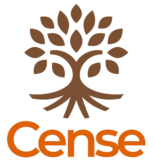
Sensemaking is a social process that helps us make sense of data, information, and knowledge in a time of complexity. It’s used often in innovation contexts when we are fitting data to a unique situation.
The RSA (the Royal Society for the encouragement of Arts, Manufactures and Commerce) a UK-based charity and think-tank has recently updated and revised its collective sense-making framework which provides a clear example of ways to consider change-making and leading in times of crisis.
The 2×2 framework, presented below, helps to frame activities that may have stopped or started during a crisis and what activities we may wish to amplify, end, abandon, and re-start.

Developmental Thinking
What the RSA framework embodies is what we call developmental thinking. This is the kind of thinking embedded in Developmental Evaluation, design and innovation. This thinking is about taking information and feedback from the activities in the system and making adaptive, strategic decisions to keep the organization developing (evolving) through learning.
Learning is about taking action based on new information and in some cases — such as those in complex situations with lots of change and activity — this learning must come from sensemaking. It tells us when to stop, start, pause, and wind-down activities.
The RSA proposes conducting this sensemaking over time through a process that is akin to developmental design and developmental evaluation through the crisis which, in the case of events like COVID-19, might be protracted and evolve. As noted below, it also recognizes that sensemaking is tied to systems thinking where events (the most visible parts of a system) are actually built upon larger sets of behaviours, structures, and paradigms.

To make use of this requires a monitoring and evaluation system tied to an overall developmental, design-driven process. It’s not difficult, but it does require substantial mindframe shifts and organizational supports. Yet, the payoff is that your organization is adaptive and working with what’s happening and what’s emerging, rather than stuck trying to make what used to work come alive in an environment that has not only changed, but might be different altogether.
If your organization needs help in reshaping your work to make the most of what you have and pivot to what’s needed next, contact us. This is what we do.

